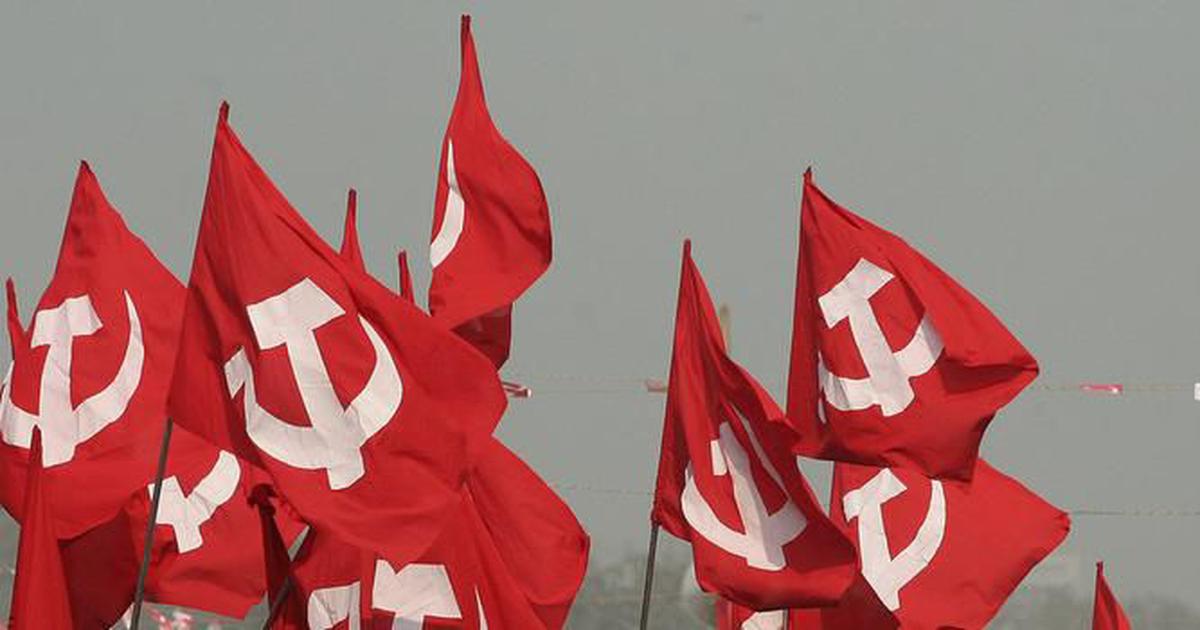In his book Why Socialism?, Jayaprakash Narayan writes, “Socialism is not a code of personal conduct but a system of social reconstruction. When we speak of applying socialism to India, the first thing that strikes us is the strange and painful fact of inequalities – of rank, of culture, of opportunity: a most disconcertingly unequal distribution of the good things of life. Poverty, hunger, filth, disease, ignorance – for the overwhelming many. Comfort, luxury, position, power – for the select few.”
Jayaprakash Narayan believed that socialization of the means of production was the fountainhead of socialism and that it could be used to wipe out ills like unequal distribution of wealth and exploitation. This premise can be our point of departure. He believed that the tiller should own the land and that State farming should be encouraged. He wanted the economic order based on private ownership of the means of production to be replaced with a system in which the means of production are under the control of the State. He saw that this could be possible only if State power was in the hands of the socialists. In other words, Jayaprakash Narayan believed that unless the socialists get to control the levers of State power, they won’t be able to bring about the socio-economic reconstruction they are aiming at. This could be possible only when India was free. An enslaved nation could never bring about such changes. Hence, his and other freedom fighters’ focus was on attaining freedom from the British.
The concept of socialism doesn’t find mention in Indian history as the lives of the kings and emperors do. The Indian social order was never socialist. It was based on the Varna system. Even foreign rulers didn’t make any attempt to alter this system. In the medieval period, we do find a hint of socialistic principles in the works of Kabir and Raidas. But we need to remember that Kabir, Raidas and others of their ilk had little, if any, interest in politics. They did have confrontations with the contemporary rulers but their socialism was confined to their literature.
The concept of socialism formally became a part of the Indian polity with the launch of the Congress Socialist Party on 17 May 1924. Since then, the concept has changed beyond recognition. Today, neo-liberalism is threatening to gobble up almost all ideologies. But socialism is still counted among one of the best alternatives. It is still what crores of people dream – the dream that had inspired Karl Marx and his associate Friedrich Engels. Among Indian leaders, Jayaprakash Narayan was the most committed to the cause of socialism and he sincerely dreamt of turning India into a socialist nation.
Just pick up any history book and you will discover that from 1905 to 1947 and then from 1948 to 2019, socialists played a seminal role in bringing about positive changes – notwithstanding the adverse situations prevailing in the country. Needless to say, as a nation, India’s capabilities and her influence have increased. We have more personal resources at our disposal. But there has been a proportional increase in the dangers, too, especially in view of our rulers leaning towards fascism. Money playing an increasingly important role in politics has shaken the roots of democratic governance. Privatization is being promoted. These were the kinds of situations JP feared may arise one day. He had given the call for Sampoorna Kranti so that the country’s sovereignty was not put away in the lockers of the wealthy.
But something went wrong along the way. In India, socialism became a house with several rooms but no roof and with its foundations ridden with termites. Every election witnessed some socialists compromising with their principles for the sake of power or other petty gains and exiting the house.
JP was not oblivious to this situation. He was present at the Anjuman Islamia Hall in Patna when the party’s formation was announced. At the time, freedom from the British was still a dream. There was little hope that India would be able to throw off the yoke of colonial slavery. There was deep disquiet among the people. They wanted freedom from exploitation. But the people did not know how to organize themselves. Most of them were illiterate or poorly educated. Caste-based discrimination was rampant. Then, there was communalism. On top of that, Indians were mercilessly exploiting other Indians at the behest of the British. The zamindari system was at its peak. The zamindars were no different from the British rulers. Their atrocities had left the producer class of Indian society groaning in pain and distress. The Congress was caught up in a web of its own making. The Hindu Mahasabha and the Muslim League were busy customizing the definition of secularist Indian-ness. On 9 August 1942, Gandhi gave the call to do or die. The socialists responded to his call. Ram Manohar Lohia, Jayaprakash Narayan, Achyut Patwardhan, Yusuf Mehar Ali, Aruna Asaf Ali and Poornima Banerjee even put their lives at risk. At that time, India was a colony. But once India gained independence and power came into the hands of the Congress, it gradually started discarding its own principles. Socialism didn’t get its due place in the Indian system. When an anti-Congress wave was blowing across the country, the socialists got the support of the communists. In 1967, a window of opportunity opened up for the non-Congress parties. In 1969, a big chunk of the communists and a small section of the socialists turned towards the Congress. The Congress itself broke up under the weight of its internal contradictions.
From 1969 to 1973, it seemed as if the central government had embraced socialism. Banks were nationalized, privy purses were abolished and poverty-alleviation schemes were launched. The government started playing a proactive role in the fields of industries and food-grain production. The trade union movement gained strength and the government listened to the students. As the Green Revolution gathered steam, farmers started getting better prices for their produce. But this did not last long and soon things were back to square one.

Who doesn’t remember the dark nights of the period from 1974 to 1977? Barring those who were too young then, no one can forget those nights. For those who are presently younger than 55, 1974 is as distant as 1942 was for the earlier generation. Then came the 1990s. Emergency had faded into history. In 1991-92, the seekers of social justice – those who believed that politics for dignity is a must, those who wanted to loosen the shackles of religion, language and caste, in short those who represented the deprived India – decided to stand up and be counted. A new triangle thus emerged.
Looking back, we realize that today’s socialists are not worried about their past defeats and failures. What they are concerned about is how to succeed. Socialists succeeded in 1942 and then in 1964-67. But non-Congressism ultimately led to the Emergency and domination of Indira Gandhi. The 1990s witnessed Mandalization, the battle for social justice, the temple movement, the attempt to carve out a distinct Hindu identity and globalization. The Indian capitalists, with the backing of the middle class, dealt debilitating blows to India nationalism and forged an alliance with foreign capital. Today, the Hindutva forces and the market forces, that is the forces of globalization, have come together. This hasn’t yielded any positive results for the nation. It has only served to inject poison into the atmosphere. The youth of the upper caste, due to their poor understanding, perceived the Mandalization policy and reservations as an attack on them. They could not see that these endeavours were aimed at deepening democracy and completing the work of giving the deprived India its due share in power.
Today, in the most prosperous areas of India, water is undrinkable and air is unbreathable. The country’s management is, by and large, in the hands of the wealthy. Whom is the Supreme Court meant for? Whom is the administrative system meant for? Who are the police meant for? Our MPs, MLAs and ministers are expected to work for whom? For the ordinary people. That is the obvious answer. But had it been so, our situation would have been different. The country has no dearth of flag-bearers of socialist politics. But the problem is that the people are not with them. This is the real issue confronting the socialists. For the new generation, Gandhi was dead and gone in 1948, Lohia in 1967 and Jayaprakash in 1979. Ambedkar passed away in 1956. Now, neo-liberalism is ruling the roost.
Let us now talk about the Dalits and the socialist movement. Dalits are still suffering. The level of illiteracy is the highest among them. Dalit women represent the most illiterate section of society. But are the Dalits silent? No, they are not. They are speaking up. Dalit men are raising their voice. Dalit women are raising their voice. Ambedkar repeatedly said – and Jayaprakash was not in disagreement with him – that the voice of the Dalits will keep the dream of ushering in socialism alive. You may have thousands of Dalit MPs, lakhs of Dalit billionaires but until you do not obliterate caste, until you do not build a caste-free India, untouchability, caste-based oppression, humiliation and deprivation won’t go away. To make them disappear, you have to take the path of socialism. You digress from that path because you have got power, because your caste has become more important, because from being a Dalit you have become the member of a dominant caste. But remember, even after all this, the caste system is still in place. Dalits form about 15 per cent of the country’s population. Add the extremely backward castes, and the figure grows to 35 per cent. Add Adivasis and it goes up to 43 per cent. Then, about 10 per cent of Indians come from nomadic castes and tribes. Fifty-three per cent of the people being denied the fruits of development gives rise to serious questions. This is the biggest failure of the socialist movement and is also the biggest challenge facing it.
The socialist movement in India started losing its vigour after Jayaprakash Narayan’s virtual retirement from politics. The responsibility of taking the movement further fell on the shoulders of Ram Manohar Lohia, who believed that socialism was the only way forward for India and that a beginning could be made in this direction by ensuring that all sections got their due representation in the government and the administrative machinery. That is why he gave the slogan of “Sansopa ne baandhi gaanth, pichda pave sau mein sath” (It is the firm view of Sanyukta Socialist Party that the Backwards should have sixty per cent share). This was one of the many points of disagreement between Lohia and Jayaprakash. Jayaprakash’s socialism envisaged reservation on an economic basis while for Lohia and Ambedkar, social divisions were more important. Another challenge facing socialism in India pertains to cultural socialism. It did not get the attention it deserved. On the contrary, culturally, the socialists can hardly be distinguished from the conservative Hindu priestly class.
Be that as it may, inner contradictions have been the bane of the socialist movement in India. External interventions also have played their role. JP did initiate the Sampoorna Kranti movement but its outcome fell considerably short of expectations. Clearly, the socialists themselves will have to accept they were significantly responsible for this situation. But all said and done, it would not be an exaggeration to say that socialism is the only ideology that can draw the country out of the morass it is sinking into. The only condition is that the socialists should understand what real socialism is and they should sincerely practice what they preach.
(Translation: Amrish Herdenia; copy-editing: Anil)
Forward Press also publishes books on Bahujan issues. Forward Press Books sheds light on the widespread problems as well as the finer aspects of Bahujan (Dalit, OBC, Adivasi, Nomadic, Pasmanda) society, culture, literature and politics. Contact us for a list of FP Books’ titles and to order. Mobile: +917827427311, Email: info@forwardmagazine.in)
The titles from Forward Press Books are also available on Kindle and these e-books cost less than their print versions. Browse and buy:
The Case for Bahujan Literature
Dalit Panthers: An Authoritative History







